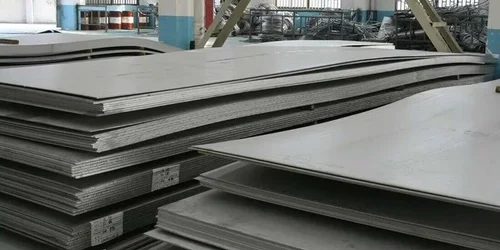Why Opt for This Exceptional Alloy in Industrial Applications?

In the realm of industrial materials, one name that stands out for its exceptional properties and versatile applications is Inconel. Among its various forms, the Inconel plate emerges as a crucial component in numerous industries, offering a myriad of advantages that cater to the demanding requirements of modern applications. Let’s delve into the advantages of Inconel plates and explore why this alloy is a preferred choice for a wide range of industrial applications.
Unparalleled Corrosion Resistance: Why Inconel Plates Shine in Hostile Environments?
Inconel plates are renowned for their outstanding corrosion resistance, making them ideal for use in harsh and corrosive environments. Whether exposed to extreme temperatures, acidic conditions, or corrosive chemicals, Inconel plates maintain their structural integrity and resist degradation over time. This corrosion resistance not only enhances the longevity of the material but also ensures the reliability of components in critical applications such as chemical processing plants and offshore platforms.
High-Temperature Strength: How Do Inconel Plates Withstand Extreme Heat?
One of the key advantages of Inconel plates is their ability to withstand high temperatures without losing their mechanical properties. This makes them indispensable in applications involving intense heat, such as aerospace engineering, gas turbine components, and heat exchangers. The high-temperature strength of Inconel plates ensures the stability and performance of equipment even under extreme thermal conditions, contributing to the efficiency and safety of various industrial processes.
Exceptional Mechanical Properties: What Sets Inconel Plates Apart in Structural Applications?
Inconel plates boast exceptional mechanical properties, including high tensile strength and fatigue resistance. This makes them well-suited for structural applications where reliability and durability are paramount. Industries such as construction, automotive, and marine engineering benefit from the superior mechanical characteristics of Inconel plates, ensuring that structures and components maintain their structural integrity even in demanding operational conditions.
Versatility in Weldability: How Inconel Plates Facilitate Seamless Integration in Manufacturing Processes?
Weldability is a crucial factor in the manufacturing industry, and Inconel plates score high in this aspect. Their excellent weldability allows for the seamless joining of components, providing manufacturers with greater flexibility in design and assembly. This feature is particularly advantageous in industries like petrochemicals and power generation, where intricate and customized structures are often required. Inconel plates enable the creation of complex designs without compromising the overall integrity of the welded joints.
Resistance to Oxidation: Why Inconel Plates Excel in Oxidizing Environments?
Oxidation can be a significant concern in many industrial settings, particularly in applications involving exposure to air or other oxidizing agents. Inconel plates exhibit exceptional resistance to oxidation, forming a protective oxide layer that shields the material from the detrimental effects of oxygen and other reactive substances. This resistance to oxidation is a critical factor in industries such as metallurgy, where materials are subjected to high-temperature processes in the presence of oxygen.
Corrosion Fatigue Resistance: How Inconel Plates Combat the Dual Threat of Corrosion and Fatigue?
Inconel plates go beyond simple corrosion resistance by offering corrosion fatigue resistance, a quality that is invaluable in dynamic and cyclic loading environments. This unique property ensures that components made from Inconel plates maintain their structural integrity even when subjected to repetitive stress and corrosive conditions. Industries such as oil and gas exploration, where equipment faces both mechanical stress and corrosive elements, benefit greatly from the corrosion fatigue resistance of Inconel plates.
Chemical Compatibility: How Inconel Plates Stand Up to a Variety of Chemical Challenges?
Chemical compatibility is a critical consideration in industries where exposure to various chemicals is inevitable. Inconel plates demonstrate exceptional compatibility with a wide range of chemicals, including acids, alkalis, and salts. This makes them indispensable in chemical processing plants, where equipment must endure exposure to aggressive chemical substances. The chemical resistance of Inconel plates contributes significantly to the safety and reliability of equipment in these environments.
Long-Term Cost Savings: How Choosing Inconel Plates Yields Financial Benefits Over Time?
While the initial cost of Inconel plates may be higher compared to some other materials, the long-term cost savings are evident in their durability and longevity. The resistance to corrosion, high temperatures, and fatigue means that components made from Inconel plates require less frequent replacements and maintenance. This results in reduced downtime, lower maintenance costs, and an overall improvement in the economic efficiency of industrial operations.
Conclusion:
Inconel plates emerge as a compelling choice in various industrial applications, offering a combination of unmatched advantages that cater to the diverse demands of modern manufacturing and processing. From corrosion resistance to high-temperature strength and exceptional mechanical properties, Inconel plates excel in environments where other materials may falter. The versatility and reliability of Inconel plates make them a preferred option for industries that prioritize durability, safety, and long-term cost-effectiveness. As you navigate the landscape of industrial materials, consider the myriad advantages of Inconel plates and unlock a new level of performance for your applications.
Leave a reply
You must be logged in to post a comment.







